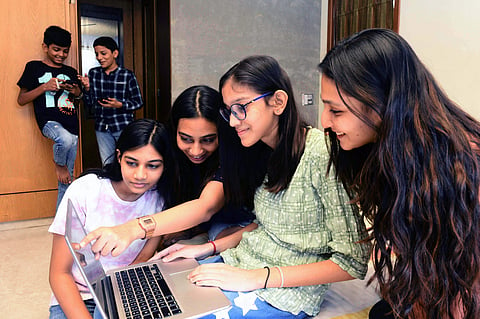

The World Economic Forum report, titled Education 4.0, has been released and it states that the School-to-Work (S2W) transition process is facing major hurdles in India. Additionally, it adds that a lack of coordinated effort resulted in an isolated skilling system which has not been able to achieve its maximum potential, as stated in a report by PTI.
The Education 4.0 report is mainly about how digital and other technologies can address learning gaps and make education accessible to all. The report states, "India has more than 60 million secondary and higher secondary students, but 85 per cent of schools are yet to implement vocational courses as part of their curriculum."
Further, School-to-work (S2W) transition process is about making students job-ready in a constantly evolving employment landscape. The report highlights that the S2W process is still facing major hurdles, namely lack of trainers, inadequate resources and infrastructure, poor integration with the mainstream school curriculum and poor linkages between localised skill gaps and vocational courses. "A lack of coordinated efforts has resulted in an isolated skilling ecosystem that has not been able to achieve its maximum potential," it states.
What's the second-best option?
As per the report, it is observed that many students and parents consider vocational education to be the second-best option to mainstream education. In this regard, it states, "Credits cannot be transferred between formal and informal education streams, so students who want to pursue higher education after vocational courses (or vice-versa) face difficulty in linking their credits. This discourages mobility between the two streams."
Talking about skills and knowledge, the report states, "Employers expect students to have a high degree of competencies, skills and knowledge relevant to their work. They also prefer strong communication skills, teamwork and problem-solving and critical-thinking abilities." The report highlights that, at present, school pedagogy is designed with no reference to industry needs since there are no formal channels for industry participation, as stated in a report by PTI.
Commenting on the gaps in the education field, Managing Director (MD) of the World Economic Forum, Jeremy Jurgens said, "The COVID-19 pandemic has widened the gaps in learning outcomes among school children in India.These gaps have been magnified for children, particularly from disenfranchised and vulnerable families who face innumerable socio-economic issues that also have been worsened by the pandemic."
Insights and recommendations
The MD opined, "Through the Education 4.0 India initiative, the Forum, together with UNICEF (United Nations International Children's Emergency Fund) India and YuWaah, aim to offer insights and recommendations that transcend the education landscape in India and can achieve global impact. This is the first partnership for the Forum and UNICEF at the country level."
It was in May 2020 that the Education 4.0 India initiative was launched and has convened over 40 partners from the education technology, government, academic and start-up communities.
